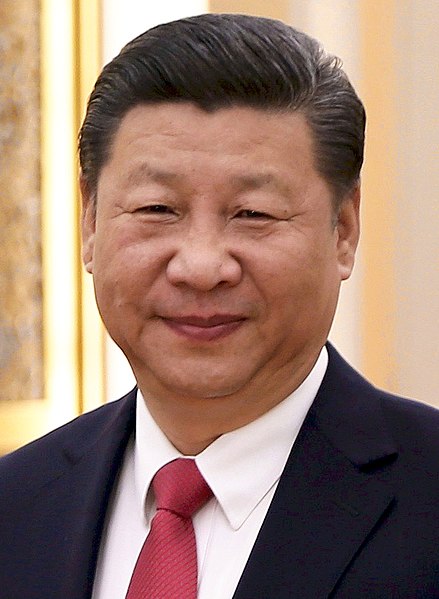On May 28, 2020, the Civil Code of the People’s Republic of China was adopted at the Plenary Session of the National People’s Congress (NPC). This is the first law to be called a “Code” since the foundation of the People’s Republic of China.
In Qiushi, the central theoretical organ of the CPC, the Civil Code is described as “an encyclopedia on social life” and “the civil constitution of modern society”. (1)
The accepted Civil Code is considered “a milestone of securing human rights in China and improving the rule of law in China”.
In Qiushi, it has been stated that “The enactment and enforcement of the Civil Code will effectively reinforce the basic socialist economic system and add permanent strength and vitality to the healthy development of the economy and society.”
The assessment continues as follows: “Public ownership is the mainstay and multiple ownership systems develop together with the economy. Distribution by work is the mainstay and multiple distribution methods also coexist. Socialist market economy and the basic socialist economic system are based on the rule of law. The Civil Code provides the civil domain with a legal basis, allows to mobilize individuals’ enthusiasm and creativity, and the masses participate in competition on the basis of open, fair, equal opportunity, thus promoting the high-quality development of the national economy.”
IN ORDER TO REALIZE THE CHINESE DREAM
The reason why the Civil Code was enacted at precisely this moment can be explained by the “Chinese Dream”. In an analysis published on the Caxin website, “Every civil law is considered a symbol of a move in the civilization of nations.” (2)
The article recalls how the 1804 French Civil Code embodied the legacy of the Napoleonic period, that the German Civil Code of 1896 was born out of a genuine desire for national law to override the conflicting traditions and regional laws of different German regions, and that the Japanese Civil Code of 1898 was the result of various modernization movements after the Meiji Restoration. “The enactment of the Civil Code has been the dream of China since the Qing Dynasty rule (1644-1911), when Western powers suffered a series of humiliating defeats”.
Just before the Qing Dynasty collapsed, in 1912, it drafted a civil code to govern ownership, civil procedure and trade, but was unable to implement it. The Nationalist Government that founded the Republic of China has since enacted this law. After 1949, many laws were enacted under the civil law, but the desire to pass a proper law was always interrupted.
After the election of Xi Jinping as the secretary general of the Party, the enactment of the Civil Code was determined to be an important task.

In March 2015, the NPC approved the general provisions of civil law and took the first important step towards enacting a unified civil law. Starting in August 2018, six draft chapters were reviewed at many NPC Standing Committee meetings. In December 2019, the draft civil code was announced. It was then published online for public opinion. After receiving more than 114,000 recommendations and suggestions, the NPC Standing Committee’s Legislative Affairs Committee submitted to the NPC for negotiation on December 28.
On April 21, the NPC Constitutional and Legal Committee held a conference to complete the draft and announced that China’s journey to enact its civil laws was approaching its ultimate goal.
The Civil Code of China consists of seven parts: “General Provisions”, “Property”, “Contract”, “Personality Rights”, “Marriage and Family”, “Inheritance”, “Unfair action obligation” and “Additional Provisions”. The Civil Code, consisting of 1,260 articles, is described as the largest legislation in contemporary Chinese history.
XI JINPING’S ARTICLE
An article of the Chinese President Xi Jinping introducing the Civil Code and explaining why its implementation is important was published in QiuShi magazine on June 19, immediately after the Code passed. (3)
Xi explains the purpose of the law as follows: “The purpose of organizing this collective work is to fully develop and promote the rule of law, to build a socialist country governed by law; to better protect the rights and interests of our citizens.”
Xi states that the CPC pays attention to the protection of human rights in every period of liberation, socialist construction and reform periods of internal struggle.
“During the Revolutionary War years, our party created and enforced laws covering land, marriage, labor, finance and economics in the Central Soviet Area, Shaanxi-Gansu-Ningxia Border Area and other local areas. After the establishment of the new China, my country has successfully formulated and enforced a number of laws and regulations related to household registration, industry and commerce, cooperatives, urban housing and contracts, such as the Marriage Law and the Land Reform Law. Our party also initiated civil law enforcement four times in 1954, 1962, 1979 and 2001, but could not complete due to circumstances.”
Xi Jinping points out that with the “Reform and Opening Out” started in 1978, the change of China’s civil and commercial legal system has accelerated. He reminds us that in the last 40 years, many laws and regulations have been enacted in matters brought together in the last Civil Code as a result of the imposition of needs. “After more than five years of work, with the joint effort of all parties, the Civil Code was finally declared and enforced, and the desire that a few generations had been waiting for was fulfilled,” Xi said.
Xi considers the Civil Code as a means of “strengthening the foundation of the socialist economic system, adhering to the ‘human-centered development thought’, protecting the rights and interests of the people, securing the law and promoting the development of China’s human rights lawsuit, modernizing and improving the administration system.”
THE CRITERION OF “PUBLIC SERVICE” PRINCIPLE
The President of China defines five tasks for the successful implementation of the Civil Code:
“First of all, we should broadly explain why the Civil Code is of great importance and strengthen the education of the Civil Code. If the Civil Code is well implemented, the rights and interests of the people will be guaranteed by law, the interaction between people will be more organized and society will be more harmonious. Party and state organs at all levels should consider the provisions of the Civil Code; it should not violate legitimate civil rights owned by the public, including personal and property rights. The level of enforcement of the law will be the criterion of the extent to which our state organs have fulfilled our ‘service to the public’ goal.
Secondly, the enforcement of the Civil Code does not mean that all problems related to the construction of the civil law rule in socialist society will be resolved in a snap and for all. We should be aware that protecting the rights of the people is the basis of this law, respond to the needs imposed by technological development and progress, and ensure the continuous improvement and development of the Civil Code on the basis of these practices.
Third, we have to train and strengthen law enforcement officers and judicial units to properly enforce the Civil Code. Governments at all levels should ensure the effective implementation of the Civil Code as the starting point for government within the rule of law. We should use the Civil Code as an important criterion for administrative decision making, administrative management and administrative control. Thus, timely responses to social concerns are provided.
Civil law is a highly professional text. During implementation, legal institutions, lawyers and other legal professional organizations and legal professionals should be allowed to play their roles to help the masses realize and maintain their legitimate rights and interests.”
“LAWS ARE APPLIED IF THEY ARE IN THE HEART OF THE MASSES”
“Fourth, if the Civil Code is to be implemented productively, the civil code should be brought to the masses and enter into the hearts of the masses. In order to guide the masses to understand that the Civil Code is not just the text written in the law book, the focus of the ‘14th Five-Year Plan’ period should be regulated as the dissemination of the law. We must guide the masses to realize that the Civil Code is not only a law to protect their rights and interests, but also a norm that all members of the community must follow and develop. The Civil Code needs to be included in the education curriculum at the national level and taught to young people.”
For the fifth task, President Xi determines the task of developing the philosophy and theory of socialism with Chinese characteristics in the legal domain.
CONCLUSION: A CIVILIZATION FOR THE PUBLIC
In the words of Dr. Doğu Perinçek, the Chairman of Vatan Party, “Liberalism betrayed his brother, Humanism. Liberalism’s claim to humanity in some places is crawling in blood.” (4) The enactment of the Civil Code in China is the beginning of a new practice that puts the people at the center and shows that the socialist state is the means of protecting the interests of the people and making them the master.
- http://www.qstheory.cn/dukan/qs/2020-06/15/c_1126112262.htm
- https://www.caixinglobal.com/2020-06-01/in-depth-decoding-chinas-first-civil-code-101561290.html
- http://www.qstheory.cn/dukan/qs/2020-06/15/c_1126112148.htm
- https://www.aydinlik.com.tr/haber/merhaba-kamuculuk-1-liberalizmin-humanizme-ihaneti-203511-2









Leave a Reply